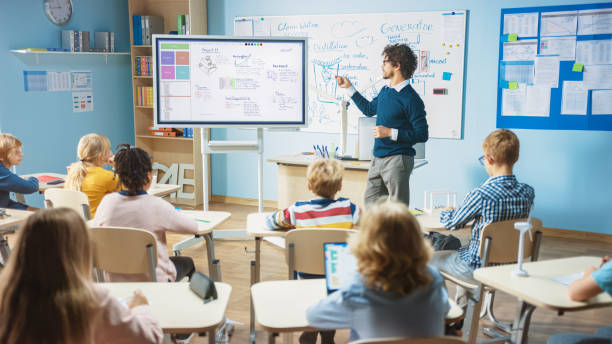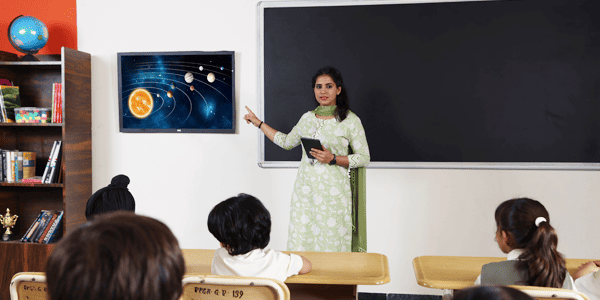Achieve Academic Success with Primary Science Tuition Singapore
Achieve Academic Success with Primary Science Tuition Singapore
Blog Article
Exploring the Different Teaching Approaches in Key Science Education Today
Inquiry-based understanding, hands-on experiments, and the assimilation of innovation are redefining just how instructors involve young minds. Furthermore, collective strategies and separated instruction are being utilized to cater to the diverse requirements of trainees, boosting both interaction and understanding.
Inquiry-Based Knowing
Inquiry-Based Knowing (IBL) is an instructional technique that motivates students to discover clinical principles through questioning, examination, and hands-on testing. This method stresses the function of pupils as active participants in their discovering, advertising important reasoning and analytical abilities. By engaging with real-world concerns, trainees end up being interested and inspired, which boosts their understanding of clinical principles.
In IBL, teachers serve as facilitators, leading pupils as they navigate their queries as opposed to delivering info directly. This student-centered method enables distinction, suiting different finding out speeds and styles. Trainees establish skills in creating hypotheses, making experiments, and evaluating information, which are crucial for scientific literacy.
Additionally, IBL cultivates collaboration among trainees, urging them to share findings and ideas. This collective questions promotes social skills and a sense of neighborhood within the classroom. The procedure of questions urges durability, as pupils find out to accept failing as a stepping rock toward understanding.
Hands-On Experiments
Hands-on experiments are a crucial part of effective scientific research education and learning, complementing the principles of inquiry-based knowing. These experiments enable trainees to engage directly with clinical concepts, fostering a deeper understanding with experiential discovering. By adjusting products and observing results, young students can grasp abstract theories in substantial means.
Such activities advertise essential reasoning and analytical skills, as pupils hypothesize results, conduct experiments, and evaluate outcomes. This process encourages them to ask inquiries, improve their understanding, and develop a clinical frame of mind. In addition, hands-on experiments can be customized to diverse knowing designs, making certain that all trainees have the possibility to involve meaningfully with the content.
Additionally, hands-on experiments often encourage collaboration among peers, promoting synergy and interaction abilities. Working in groups enables pupils to share concepts, go over searchings for, and find out from one an additional, which improves their total instructional experience.
Integrating hands-on experiments into the key science educational program not just enriches the finding out setting but likewise cultivates a lifelong rate of interest in science. By proactively getting involved in their education and learning, pupils are more probable to create an enthusiasm for scientific query that extends beyond the classroom.

Technology Integration
Incorporating technology into primary science education has actually become progressively necessary in fostering pupil interaction and improving learning results. The usage of digital tools, such as interactive simulations, online labs, and educational software application, offers students with opportunities to check out scientific principles in cutting-edge ways. These resources facilitate a much deeper understanding of complex topics by allowing learners to envision and manipulate variables that would certainly be not practical in a typical classroom setting.
Furthermore, modern technology integration encourages personalized learning experiences. Students can advance at their very own pace, taking another look at challenging principles through multimedia sources, which accommodate different knowing styles. This adaptability not just sustains individual development however also grows a feeling of autonomy in students.
Furthermore, technology functions as a bridge to real-world scientific research, connecting pupils with current study and specialist contributions. Accessibility to online data sources and clinical journals broadens students' perspectives on scientific questions and fosters crucial believing skills.
Collaborative Discovering
Collaborative knowing plays an essential duty in key science education and learning by promoting synergy and interaction skills amongst students. This approach encourages learners to work with each other, share understanding, and involve in problem-solving, which enhances their understanding of scientific ideas. By taking part in group tasks, pupils find out to express their concepts, listen to diverse viewpoints, and discuss solutions, all of which are necessary abilities in both real-world and scholastic contexts.

Research study indicates that joint learning can bring about increased inspiration and engagement in scientific research topics, as trainees find enjoyment in shared experiences (primary science tuition Singapore). Additionally, this technique prepares pupils for future joint endeavors, equipping them with the skills necessary for effective synergy in college and professional environments. Inevitably, accepting collaborative knowing in primary science education and learning can significantly improve the knowing experience and advertise a much deeper understanding of clinical inquiry
Differentiated Direction

Distinguished direction can materialize in various ways, such as varying the content, processes, or items of learning. Instructors may use tiered tasks that supply differing levels of complexity, permitting pupils to function at their corresponding preparedness levels. Additionally, flexible organizing approaches can promote partnership among trainees with different abilities, fostering peer learning.
Assessment plays an important function in this method, as it informs guideline and assists teachers recognize each trainee's distinct demands. Developmental evaluations, such as tests and observations, can direct teachers in readjusting their methods to improve finding out results. primary science tuition Singapore. Inevitably, by executing set apart guideline in key science education and learning, teachers can grow a much more equitable and efficient understanding atmosphere, equipping all trainees to reach their full capacity in understanding scientific phenomena
Conclusion
In recap, the varied training strategies in primary science education, consisting of inquiry-based learning, hands-on experiments, innovation integration, joint discovering, and differentiated direction, collectively add to a much more reliable understanding environment. These techniques promote crucial reasoning, analytic abilities, and a much deeper understanding of clinical principles. By carrying out these approaches, educators can create helpful and appealing classrooms that attend to the link diverse needs of students, ultimately fostering a lifelong interest in science and enhancing academic achievement.
Inquiry-Based Knowing (IBL) is a pedagogical technique that motivates students to discover clinical ideas with questioning, investigation, and hands-on testing.Collective knowing plays a vital role in primary scientific research education and learning by promoting team effort and communication abilities amongst trainees.Research shows that collective knowing can lead to enhanced motivation and involvement in science subjects, as pupils discover pleasure in common experiences.In promoting an inclusive learning setting, distinguished instruction arises as a key approach to accommodate the varied needs and abilities of students in key scientific research education. official site Eventually, by executing differentiated instruction in main science education and learning, educators can grow a more fair and effective discovering environment, encouraging all trainees to reach their complete potential in recognizing scientific phenomena.
Report this page